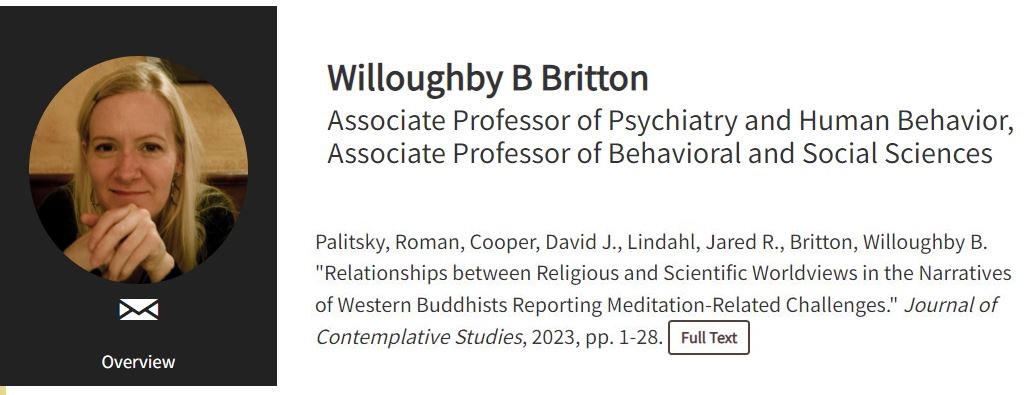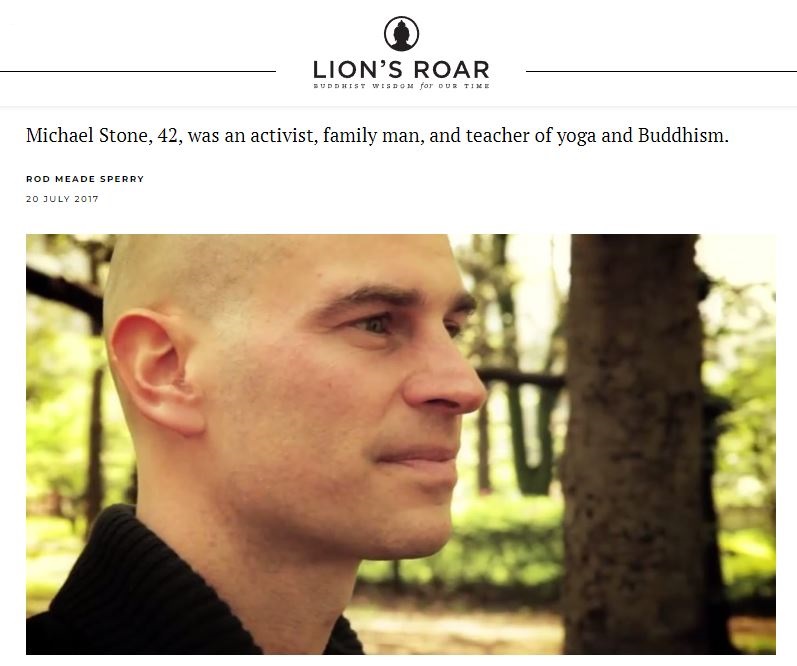Willoughby Britton Commenting on the Dalai Lama’s Advice
with
Michael Stone
Along with an essay by Beezone
on
The Importance of Study in the practice of Meditation
The following video put together by Beezone explores an insightful discussion on the less commonly addressed negative effects of meditation. The first portion features an interview between Dr. Willoughby Britton, a neuroscientist and clinical psychologist, and Michael Stone (deceased) a seasoned Buddhist meditation teacher. Dr. Britton, who presented her research to the Dalai Lama in 2012, shares her findings on the adverse effects that some experienced meditators encountered during her study. The second portion is at Dr. Britton’s presentation to the Dalai Lama and his thoughtful response, which provides a crucial and important clarification on the subject of meditation. This video sheds light on the complexities of meditation practice and how it may affect individuals in unexpected ways.
Understanding Meditation: The Individual’s Role in Transformation and the Importance of Study
by Beezone
Meditation, in any form or tradition, is often misunderstood as a technique that produces change in the individual. People may view it as a magical solution or a practice that “does the work” for them. However, this is a fundamental misconception that needs to be clarified for anyone beginning a meditation practice. Meditation is not a method that imposes change on the individual; rather, it is a practice through which the individual undergoes change—if and when they actively engage with it.
At its core, meditation consists of postures—whether physical, mental, or respiratory—that, in and of themselves, are neutral. These postures are simply forms of practice that create the potential for transformation within the individual. The practice, whether sitting, standing, lying down, or even in a sleep state, initiates a potential for change, but the change itself must come from and through the individual engaging in the practice. Meditation does not “do” the changing; it merely offers a framework. The responsibility for any potential transformation lies entirely within the practitioner.
This distinction is vital because it places the individual in a position of agency rather than passivity. Often, beginners believe that simply following a set of instructions or adhering to a particular meditation form will automatically lead to personal transformation. They may experience frustration when progress feels slow or nonexistent, blaming the method for not delivering the expected results. However, true change arises from the person’s engagement, awareness, and willingness to evolve, not from the method itself.
The Role of Study in Meditation Practice
Alongside the actual practice of meditation, another crucial component that should not be overlooked is the importance of study. As the practice of meditation deepens, so does the complexity of the individual’s experience. The mind, emotions, and body all undergo transformations, sometimes subtle and sometimes profound. It is essential that the practitioner develops a proper understanding of these effects, and this is where study becomes a vital companion to practice.
Study serves as a guiding framework that allows the individual to interpret their experiences and avoid misunderstandings that could arise as the practice unfolds. Without the right context or knowledge, the changes brought on by meditation can amplify whatever mental and emotional patterns are already present in the individual. In some cases, this can lead to positive growth; in others, it may exacerbate existing struggles, leading to confusion, anxiety, or even harmful effects.
For example, if an individual approaches meditation with unresolved emotional turmoil or rigid mental patterns, the practice can intensify these conditions rather than resolve them. Study, especially of the philosophical and psychological underpinnings of meditation, helps practitioners recognize the nature of their experiences and gain the necessary insight to navigate them effectively. Understanding the effects of meditation and its potential to stir up deeply rooted aspects of one’s psyche allows the practitioner to approach their development with awareness and clarity.
Through study, individuals can learn the history, theory, and guidance from experienced teachers and traditions that have navigated these challenges before. It offers a map for the journey that meditation initiates. Moreover, study helps guard against the common mistake of assuming that meditation is a purely mechanical or mystical process. Instead, it teaches that meditation is a holistic practice that involves the integration of mind, body, and spirit—and that such integration requires an active, informed engagement.
Balancing Practice and Study for Responsible Growth
The combination of meditation practice and study creates a balanced approach to growth. Meditation provides the direct experience, while study offers the conceptual framework to make sense of those experiences. Without study, a meditator may feel lost in the depth of their own mind or struggle to interpret the sometimes intense emotional and psychological shifts that occur. On the other hand, without actual practice, study remains theoretical, disconnected from lived experience.
Ultimately, the responsibility lies with the individual to bring both practice and study into their lives. The meditation itself does not “do” the work; it is the individual who must transform through both the experiential discipline of meditation and the reflective discipline of study. Together, they form a powerful tool for self-awareness and personal development, ensuring that meditation becomes a vehicle for positive, integrated growth rather than an unexamined practice that may yield unpredictable results.
For anyone starting a meditation practice, it is essential to understand that they are not merely the beneficiary of meditation; they are its active participant and architect. By combining the practice with dedicated study, individuals has the potential to navigate their own transformation with both responsibility and wisdom.
An important beginning understanding:

